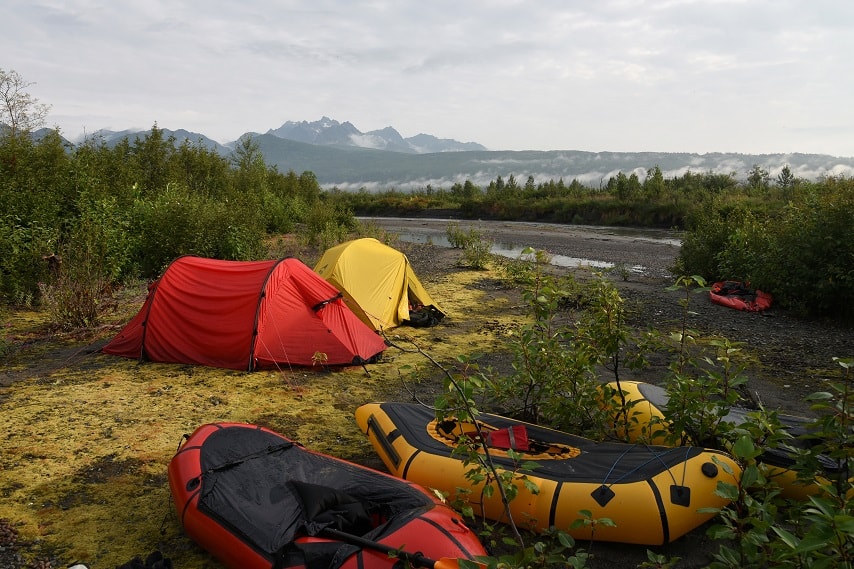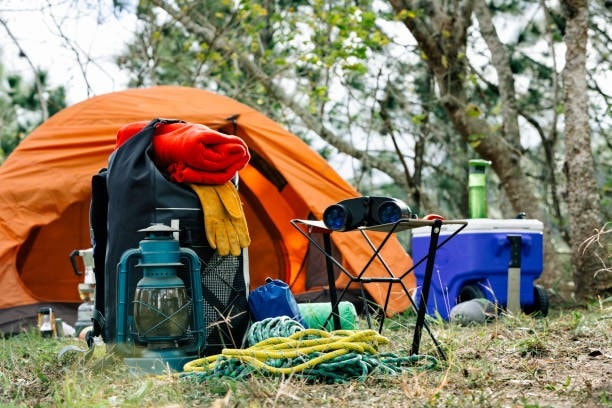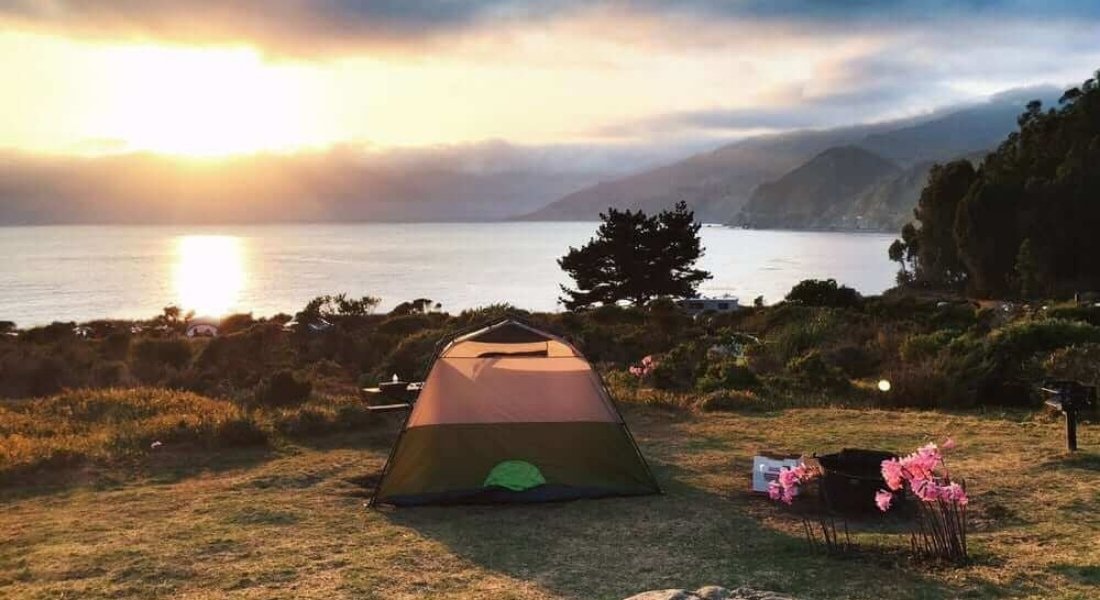Disclosure: This post may contain Amazon affiliate links.
Camping is the perfect getaway from your daily life, offering stress relief and a way to find your peace or dive into a new, exciting adventure. If you prepare yourself and do some planning, such as choosing the right clothing for different weather conditions and outdoor activities, you can achieve your outdoor goals with confidence and without stress. Camping also offers a great opportunity for exploring the outdoors, gaining confidence, and meeting like-minded friends. Whether you want to relax or find yourself, enjoy a getaway with your friends, have a romantic date, or go on an exciting recreational escape with your family, you can find what you’re looking for in the great outdoors. Beautiful nature, mountains, rivers and lakes, exotic animals, cozy nights under the stars, and romantic sunrises and sunsets—all of this is waiting for you on your camping trip.
Don't forget essential items and tasks such as checking out resort activities, packing hygiene products, replenishing first-aid kits, purchasing proper camping gear, practicing setting up tents, and freezing food before packing a cooler.
If you’re new to camping, the best way to learn is to jump right in and try. You’re going to love it! Of course, you may encounter a few bumps along the road, but it’s important to remember that your camping trip will rarely go as planned. Usually: NEVER! So, relax and enjoy your camping trip with your loved ones, including friends, parents, or team members. Involve your group in the planning process to create a schedule that ensures everyone has a role and feels included. Use this time to strengthen bonds and create plenty of lasting memories. Your body and mind will thank you for the break from the daily grind, and you’ll return feeling refreshed and more connected to nature and your fellow campers. Remember, the best adventures often come from the unexpected, so embrace the spontaneity and enjoy each day of your outdoor experience.

ESSENTIAL GEAR FOR BEGINNERS
Before you head out, make sure you have the right gear. Here’s a list of must-have items to make your trip comfortable and enjoyable:
TENT
Your tent is the most important piece of equipment. For beginners, we recommend:
- Air Tents: Easy to set up with inflatable beams.
- Pole Tents: Traditional and sturdy, though they take longer to pitch.
Tip: When choosing a tent, consider the number of people and gear you need to fit inside. A 4-person tent is more comfortable for 3 people with gear.
SLEEPING BAG
Choose a sleeping bag that matches the season:
- Summer Bags: Lightweight for warm weather.
- Winter Bags: Insulated for cold conditions.
SLEEPING MAT OR AIR BED
A good night’s sleep is essential. Choose between:
- Air Beds: Offer luxurious comfort.
- Sleeping Mats: Great for lightweight backpacking.
CAMPING STOVE
A stove is essential for cooking meals:
- Single-Burner Stoves: Compact and easy to use.
- Multi-Burner Stoves: Great for cooking multiple dishes.
CAMPING CHAIR
A sturdy, comfortable chair is worth the investment for relaxing around the campsite. You can check this one here.
LIGHTING
- Torch and Lantern: Necessary for navigating your campsite at night.
COOKWARE AND UTENSILS
Durable, lightweight cookware and utensils will enhance your outdoor cooking experience.
TENT PEGS AND MALLET
Extra pegs and a mallet help secure your tent, especially in windy conditions.
FIRST AID KIT
A First Aid Kit is a must to have for outdoor activities. You never know when you are going to need it.
CAMPING SHOVEL AND AXE SET
Camping shovel and axe are essential to always have with you. They are very helpful in preparing your favorite camping spot.
FIRE EXTINGUISHER
Always be prepared if something goes wrong with your camping fire. The Fire Extinguisher always keeps it near you.
CHECK FOR HAZARDS
Be mindful of critters hanging around campgrounds and seal up food and garbage to prevent them from raiding your campsite.
Tips for Finding the Perfect Campsite
Choosing the right campsite can make your camping experience much better. Here are some tips to help you find the perfect spot:
1. LOOK FOR FLAT GROUND
A level site is crucial for a good night’s sleep and a stable setup. Avoid slopes or uneven ground.
2. NEAR TO WATER
Being close to a water source like a river or lake can be convenient for cooking and cleaning. Just make sure to camp at a safe distance to avoid flooding.
3. CHECK THE WEATHER
Avoid areas prone to flooding or strong winds. A sheltered spot can protect you from bad weather.
4. ACCESSIBILITY
Ensure your campsite is easy to get to by car or foot, depending on your needs. Think about how easy it will be to transport your gear.
5. LEGAL AND SAFE AREAS
Always camp in designated areas where camping is allowed. This ensures your safety and minimizes your environmental impact.
6. AVOID HIGH TRAFFIC AREAS
Choose a spot away from busy paths or roads to enjoy peace.
7. NATURAL SHADE
Camping in a shaded area can help keep your tent cool during hot days.
8. NEARBY HIKING TRAILS
Look for campsites that offer nearby hiking trails for additional outdoor activities. This can enhance your camping experience by providing more opportunities to explore nature.
9. CHECK FOR HAZARDS
Look out for potential hazards like falling branches, ant nests, or rocky terrain.
LEAVE NO TRACE
- Pack out all trash and belongings.
- Minimize campfire impact.
- Respect wildlife and other campers.
- Customer feedback is essential in building a great reputation and maintaining service quality.
When enjoying the great outdoors, it's important to keep it beautiful:
- Dispose of Waste Properly: Pack up all your rubbish and dispose of it responsibly. Click here for a good camp trash can.
- Respect Wildlife: Observe animals from a distance and store food securely.
- Use Sustainable Gear: Choose items made from recycled materials.
ADDITIONAL TIPS
- Check Your Gear: Test all your equipment before your trip to ensure everything works properly.
- Practice Pitching Your Tent: Set up your tent at home to get familiar with the process.
- Make a List: Write down all the items you need to bring to avoid forgetting essential tasks like checking out resort activities, packing hygiene products, replenishing first-aid kits, purchasing proper camping gear, practicing setting up tents, and freezing food before packing a cooler.
- Know the Rules: Be aware of the regulations for the area you’re camping in to ensure a safe and legal trip.
- Check for the latest deals on camping gear and equipment to save money.
- Look for campsites that offer the perfect blend of relaxation and adventure.
CONCLUSION
Camping is a wonderful way to connect with nature and enjoy outdoor adventures. By following these tips and packing the right gear, you’ll be well on your way to a successful and enjoyable camping adventure. Consider planning a weekend camping trip to fully immerse yourself in the experience. Remember, preparation is key to making your first camping experience a memorable one. Happy camping!


